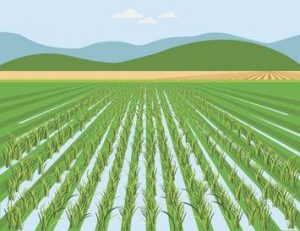Minimum Support Price : Protest

Farmers from Punjab, Haryana, and Uttar Pradesh are marching towards Delhi in the ‘Delhi Chalo’ protest, demanding legal guarantees for the Minimum Support Price (MSP).
- The headline demand in the farmers’ 12-point agenda is for a law to guarantee Minimum Support Price (MSP) for all crops, and the determination of crop prices in accordance with the Dr M S Swaminathan Commission’s report.
- The Swaminathan Commission Report states that the government should raise the MSP to at least 50% more than the weighted average cost of production. It is also known as the C2+ 50% formula.
- It includes the imputed cost of capital and the rent on the land (called ‘C2’ ) to give farmers 50% returns.
- Imputed cost is used to account for the opportunity cost of using resources like land, labour, and capital.
- The imputed cost of capital accounts for the interest or returns that could have been earned if the capital invested in farming were instead invested elsewhere
Minimum Support Price:
- MSP is the guaranteed amount paid to farmers when the government buys their produce.
- MSP is based on the recommendations of the Commission for Agricultural Costs and Prices (CACP), which considers various factors such as cost of production, demand and supply, market price trends, inter-crop price parity, etc.
- CACP is an attached office of the Ministry of Agriculture and Farmers Welfare. It came into existence in January 1965.
- The Cabinet Committee on Economic Affairs (CCEA) chaired by the Prime Minister of India takes the final decision (approve) on the level of MSPs.
- The MSP is aimed at ensuring remunerative prices to growers for their produce and encouraging Crop Diversification.
- The CACP recommends MSPs for 22 mandated crops and fair and remunerative price (FRP) for sugarcane.
- The mandated crops include 14 crops of the kharif season, 6 rabi crops and 2 other commercial crops.




